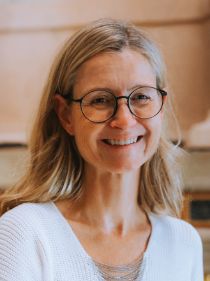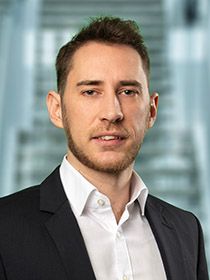On March 21, in celebration of the World Water Day, and the launch of the United Nations World Water Development Report the event “The Role of Science Diplomacy in Water Supplies” took place at the UNESCO Venice Office. This event was jointly organised by UNESCO, the University for Continuing Education Krems (UWK), the Central European Initiative (CEI), and the Institute for the Danube Region and Central Europe (IDM).
The event explored how science, art and diplomacy can foster sustainable and equitable solutions to global water issues. Water is a fundamental resource, vital for sustaining life and ensuring economic and social development. Inland water systems play a critical role in providing clean water for drinking, agriculture, and industry, while oceans and seas are essential for global climate stability and biodiversity. The fair distribution of water resources, particularly in the Global South, remains a pressing challenge, highlighting the need for international cooperation and scientific engagement in sustainable water management.
Scientists, development experts and policy makers discussed existing frameworks, models and best practices for effective science-policy interfaces, in addressing the critical challenges of the water sector. In his Keynote Dr László Balatonyi from the UNESCO Intergovernmental Hydrological Programme (IHP) stressed the importance of trust in Water Diplomacy and highlighted Hungary’s role in Water Science and water-related higher education. Dr Mounir Ghribi from the National Institute of Oceanography and Applied Geophysics (OGS) emphasised the importance of providing objective, evidence-based data for policymakers to enhance trust and cooperation in Water Governance. Ms Iryna Makarenko from the Black Sea Commission and Ms Birgit Vogel from the International Commission for the Protection of the Danube River (ICPDR) both highlighted their organisations’ roles in harmonising data, coordinating transboundary cooperation, and conducting comprehensive monitoring of water. Mr Markus Reymann from TBA21 Thyssen Bornemisza Art Contemporary pointed out the importance of integrating art, culture, and storytelling from the very beginning of conservation processes, noting that art not only embraces complexity but also makes it accessible to audiences. Prof. Dr Martin Kainz from the Research Lab Aquatic Ecosystem Research and -Health (UWK) highlighted that water is essential for maintaining healthy ecosystems. Yet, degraded rivers and the loss of more than 50% of marine life in the last 50 years demonstrate a lack of care and effective protection. To address these challenges, we need integrative ecosystem directives, long-term multidisciplinary funding, and stronger education to raise awareness and prompt action among people and decision-makers. Ms Sophia Beiter from the Institute for the Danube Region and Central Europe (IDM) emphasised the challenges of transboundary water governance in South-Eastern Europe, where conflicts and deteriorating water quality downstream complicate cooperation, but pointed out the potential of using science as a common ground to foster shared activities and progress toward EU integration.
Dr Christina Hainzl, Head of the Platform for Sustainable Development (SDGs) at the University for Continuing Education Krems (UWK), summed up the discussion as follows:
“One key take-away of the discussion today was that we should become more aware that water, but also cultural practices that deal with water, are not only a public good, but also a good that enables us to develop more human- and nature-centered thinking. I believe that this is precisely one important aspect of what the SDGs are meant to achieve.”

We would like to thank UNESCO, especially Dr Samuel Partey, and the Director of the UNESCO Regional Bureau for Science and Culture in Europe Ms Magdalena Landry, as well as the Central European Initiative (CEI) and Mr Alessandro Lombardo and the Institute for the Danube Region and Central Europe (IDM) for the successful cooperation in making this event possible.
Photos: ©UNESCO, Giulia Bartole.
Contact persons

Tags


